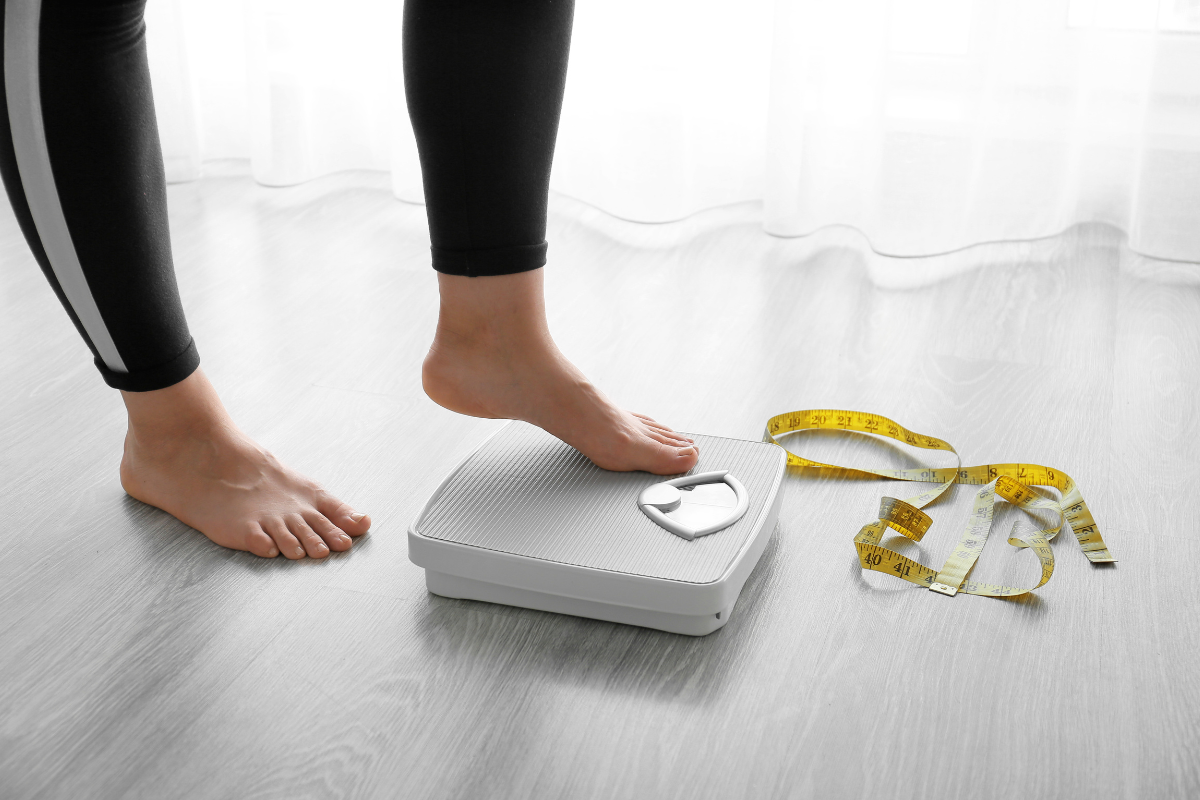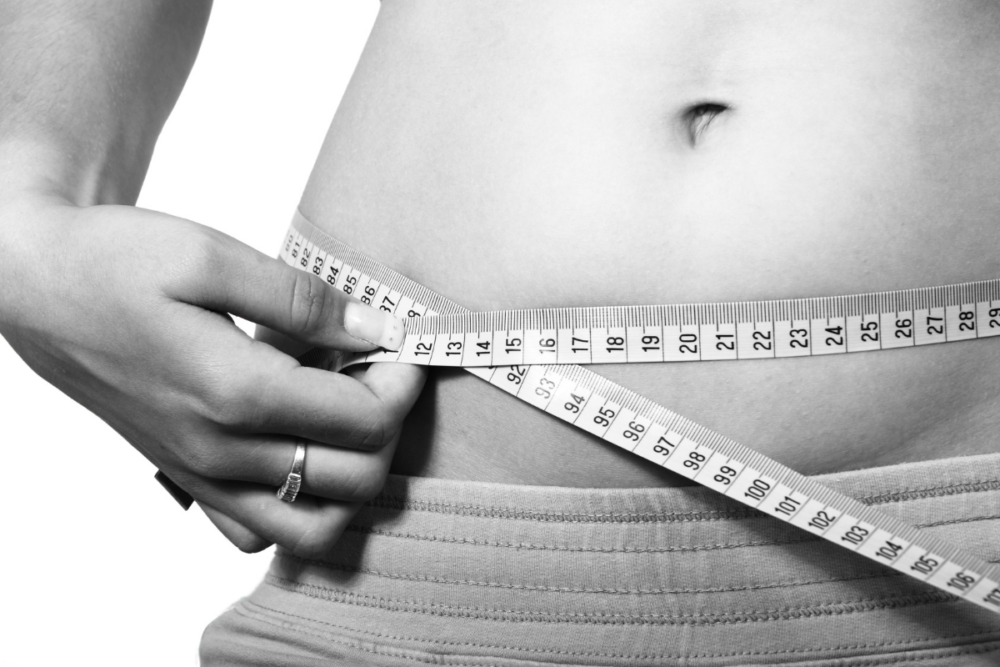Fat Burning Blocked… The Real Ketosis Culprits!

After nearly two decades of helping women optimize their metabolism, there’s one question I hear constantly: “I’m following the Keto Diet, or high fat Carnivore Diet perfectly, so why aren’t I in ketosis?” Sound familiar?
It’s frustrating when you’ve meticulously tracked your macros, eliminated carbs, and still struggle to see those ketone levels rise. But as I explain to my clients, achieving ketosis isn’t always as straightforward as reducing carbs and increasing fats. There are numerous factors that can block ketone production, many of which are completely missed by most practitioners; and of course internet “experts…” 😉
There is also the simple fact that while Ketosis IS a fat burning state, Ketosis does not guarantee weight loss and fat loss!
Let’s dive into the 8 hidden factors that might be blocking your body’s ability to produce ketones, even when you’re following a strict Ketogenic Diet or high fat Carnivore Diet approach.
1. Your Protein-to-Fat Ratio Is Off Balance
Many women, particularly those concerned about muscle maintenance (which you absolutely should be!), inadvertently consume too much protein relative to fat. While protein is essential, especially as we age, excess protein can trigger gluconeogenesis—a process where your body converts protein to glucose.
What I see in my practice: Many clients come to me eating 100+ grams of protein daily with moderate fat intake, essentially following a high-protein diet rather than a true Keto Diet. This is particularly common among women who weight train.
The solution: Rather than cutting protein (which I rarely recommend for women over 40 unless a client is closer to 200g with other issues), focus on strategically increasing healthy fats. Your body needs that fat for hormone production and as a primary fuel source during ketosis. Most women in my practice succeed when they maintain moderate protein intake, often relative to their goal weight, while strategically increasing fat consumption to 70-75% of total calories.
** Are you ready to up level your approach? The Wellness Collective is OPEN! This is an innovative, private community off of social media, where women over 40 can explore cutting-edge strategies beyond basic Keto and Carnivore Diet approaches! This uncensored community combines advanced nutrition strategies, hormone optimization, and performance enhancement techniques, all backed by almost 20 years of real clinical experience and science-based research. Click here for details!**
2. Hidden Insulin Resistance Is Blocking Ketosis
This is one of the most overlooked issues from the Ketosis struggle bus. Years of poor diet, chronic stress, and hormone imbalances can create cellular insulin resistance that persists even when carbohydrates are removed from the diet.
What I see in my practice: Women who have spent decades on the blood sugar roller coaster often have cells that remain resistant to insulin, causing chronically elevated insulin levels even on a low-carb diet. This effectively blocks ketone production and fat-burning.
The solution requires a multi-faceted approach:
~ Addressing the underlying inflammation driving insulin resistance.
~ Strategic intermittent fasting protocols tailored to your hormone status.
~ Targeted exercise that emphasizes strength training, one of the most under discussed ways to improve insulin resistance!
~ Possibly implementing some specific supplements that support insulin sensitivity (like berberine, chromium, and magnesium).
~ Functional testing to measure insulin levels, not just blood glucose, along with many other functions to truly assess and address the root cause of what’s happening!
3. Stress and Cortisol Are Sabotaging Your Efforts
Life happens and most women are typically under constant stress from career demands, family responsibilities, weight loss / wellness concerns, and more. This chronic stress creates a cortisol pattern that actively works against ketosis.
What I see in my practice: Women with elevated cortisol experience increased blood glucose levels (even without carb consumption), decreased ketone production, and stubborn fat retention — especially around the midsection. Many are caught in a cycle of pushing harder with diet and exercise, which only worsens the cortisol problem.
Fun fact… LOW cortisol can be just as problematic as high, and in all reality, in many cases more problematic. High cortisol can give you a sense of adrenaline and almost a “fake energy.” While that is not ideal, it still gives you more of a push. Low cortisol just feels like there is NOTHING in the tank.
The solutions… I work with clients to:
- Optimize Macros and implement the right strategic approach to reverse dieting so that nutrition is no longer playing a role with their stress hormones!
Implement strategic stress management techniques (not just generic “self-care”). - Adjust workout intensity and timing based on individual cortisol patterns.
- Use targeted adaptogens and nutrients that help regulate the HPA axis.
- Create boundaries around technology use, especially before bedtime.
- Schedule deliberate recovery time between high-intensity workouts.
4. Thyroid Dysfunction Is Limiting Metabolic Flexibility
Your thyroid is the master regulator of metabolism, and even mild dysfunction can dramatically impact your ability to enter ketosis. Thyroid hormone is essential for fat utilization and thermogenesis!
What I see in my practice: Undiagnosed hypothyroidism or poor T4-to-T3 conversion is extremely common among women over 40. Many have “normal” TSH levels but significant clinical symptoms and poor T3 levels (the active form of thyroid hormone). Standard medical testing often misses these issues since they are only looking for normal, and not optimal! I assess lab work for all expanded thyroid markers for OPTIMAL levels, along with the other patterns that are connected. Which… hint hint… are actually not even thyroid markers!
The solution(s):
~ Adjusting Macros + specific nutrients and herbs that support optimal thyroid function.
~ Comprehensive thyroid testing beyond basic TSH (10 total thyroid markers!).
~ Ensuring adequate selenium, zinc, and iodine for proper thyroid function.
News flash… iodine is not a one size fits all supplement like the internet docs tell you.
~ Strategic fat/ calorie cycling, avoiding weight gain, for some women to support T3 production.
~ Addressing underlying gut issues that interfere with thyroid hormone conversion.Want more on the true thyroid/ adrenal connections?! I’ve discussed this extensively in The Wellness Collective over the past month. Hop in to learn more!
Ready for help and tired of the guesswork? This is exactly what I do with my clients in both my 1:1 coaching as well as my group Weight Loss Accelerator program.
5. Poor Sleep Is Disrupting Hormone Balance
I know this won’t be shocking to hear, but sleep is when your body resets many of its metabolic pathways. Poor sleep quality or insufficient duration directly impacts insulin sensitivity, cortisol patterns, and hunger hormones. Ever wake up hungry after a poor night sleep, but you don’t really believe that you’re actually hungry!? Ghrelin, one of our hunger hormones, is falsely activated from poor sleep.
What I see in my practice: Women in perimenopause and menopause often struggle with significant sleep disruptions from hot flashes, night sweats, and hormone fluctuations. Even women who “sleep through the night” may have poor sleep quality that’s sabotaging their metabolic health. This is a HUGE topic. And one that I cover in a variety of places… one on one, The Wellness Collective and The Weight Loss Accelerator. I’ve successfully helped many clients go from 5-10 sleep interruptions per night to 0-3!
Just Some Sleep Solutions:
~ Consistent sleep and wake times to support circadian rhythm.
~ Creating a sleep environment optimized for temperature regulation.
~ Strategic supplements like magnesium glycinate, GABA, and specific botanicals before bed. …However!! Please do not assume that because you don’t sleep well, that your Melatonin is low. Most clients with sleep issues actually do NOT have low Melatonin on labs.
~ Light exposure… BOTH sunrise and sunset!
~ Addressing hormone imbalances that disrupt sleep.
~ Blue light management in the evening hours!
… I know, I know. Tell me something I don’t know, right?! I literally cannot say enough about this. I you block blue light consistently, it makes a HUGE difference in sleep patterns!
6. Underlying Inflammation Is Creating Metabolic Resistance
Inflammation is a major factor in metabolic dysfunction and can significantly impact ketone production. Sources of inflammation can include food sensitivities, gut infections, environmental toxins, and other chronic infections.
What I see in my practice: Many women have undiagnosed food sensitivities (even to “keto and carnivore friendly” foods like dairy, eggs, or nuts) that create ongoing inflammation. Many of my Carnivore clients are actually sensitive to beef and other ruminants, stated to be “the best” meat options on the Carnivore Diet! Others have gut dysbiosis, SIBO, mycotoxins, or pathogen-type issues driving systemic inflammation. I address all of this, and not limited to this list, with my one on one clients.
The solution… TEST DON’T GUESS!!
> Multiple toxin assessment and strategic detoxification support.
> Comprehensive food sensitivity testing in significant cases.
> Stool testing to identify gut pathogens, parasites, or dysbiosis.
> Strategic food elimination, rotation and reintroduction protocols. (Yes, even on the Carnivore Diet.)
> Anti-inflammatory nutrients and supplement protocols targeted to individual needs.
7. Medications Can Block Metabolic Pathways
While most of my clients are hoping to get off medications, in the meantime, certain medications can directly or indirectly interfere with ketosis by raising blood glucose, affecting fat metabolism, or altering mitochondrial function.
What I see in my practice: Common medications that can interfere with ketosis include:
~ Certain antidepressants (particularly SSRIs).
~ Statins (cholesterol-lowering drugs).
~ Corticosteroids (like prednisone).
~ Some blood pressure medications.
~ Certain antihistamines.The solution:
– Never discontinue prescribed medications without medical supervision.
– Work with knowledgeable practitioners to find medications least likely to interfere with metabolism.
– Implement targeted nutritional strategies to mitigate medication side effects.
– Consider adjunctive supplements that support metabolic pathways affected by medications.
– More frequent monitoring and adjustment of your Carnivore/ Keto Diet approach.
8. You’re Using the Wrong Testing Methods or Timing
Not all ketone testing methods are created equal, and the timing of your testing can dramatically affect results.
What I see in my practice: Many women rely solely on urine ketone strips, which become less reliable the longer you’re in ketosis as your body becomes more efficient at using ketones. Others test at the wrong times of day or fail to consider the impact of exercise, fasting, or specific foods on their results.
The solution… Remember that ketosis exists on a spectrum—even lower levels (0.5-1.0 mmol/L) can provide benefits.
Understand the pros and cons of different testing methods:
~ Blood ketone meters (most accurate but can expensive).
~ Breath ketone devices (good for trends, less precise for exact measurements).
~ Urine strips (better for beginners, less reliable over time).
~ Test consistently, ideally at the same times daily.
**Track patterns rather than obsessing over individual readings!**
Do you need a Ketosis RESET?!
If you’re struggling to achieve ketosis despite following a Keto Diet or high fat Carnivore Diet, the solution isn’t to restrict carbs further or blindly increase fats. The key is identifying which of these factors might be affecting YOUR unique metabolism and addressing them systematically.
This is why I “TEST DON’T GUESS” with clients, with specific, comprehensive testing rather than generic recommendations. Understanding your individual hormone patterns, inflammatory triggers, gut health indicators, and metabolic markers allows for a truly personalized approach.
Many women who’ve struggled for years with ketosis find that addressing these hidden factors not only helps them achieve their metabolic goals but also resolves many other symptoms they’d been experiencing. A huge key as well is realizing that ketosis does not just guarantee weight loss and fat loss.
Remember that ketosis is a tool for metabolic health, not the end goal itself. The true objective is to create metabolic adaptation, hormone optimization, and sustainable weight loss and wellness practices that support your body now and in the future.
If you’ve been struggling to achieve ketosis despite doing “everything right,” I’d love to help you uncover the unique factors that might be holding you back. Together, we can create a truly personalized approach that works with your body’s needs rather than fighting against them!
Food for Thought…
I’m committed to helping my clients find real, lasting solutions – not quick fixes. And I just cannot say enough times that Ketosis, while it has its benefits, does not guarantee weight loss or fat loss!
If you’re interested in learning more, let’s have a conversation about what would work specifically for YOUR body and YOUR goals.
Curious as to how I work with clients? Click here to message me, I’d love to chat!
Want to grab my complimentary “Hormones, Hot Flashes and High Fat” Guide? Click here to grab it, and get tons of the best tips, hacks and strategies for weight loss, fat loss, hormone balance and more!
Note: This article is for informational purposes only and should not be considered health or medical advice. Reading this article also does not make me your practitioner! Always work with qualified healthcare providers who understand your individual needs.
XOXO

Licensed Holistic Health Practitioner
Board Certified Functional Diagnostic Nutrition Practitioner
Functional Bloodwork Specialist
Gut Thrive Practitioner
Adv. Metabolic Typing Advisor
Kalish Method Functional Med. Practitioner








